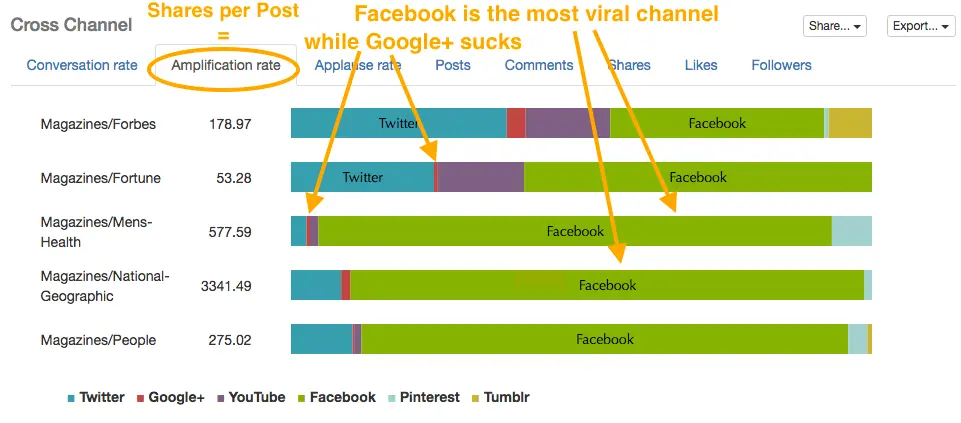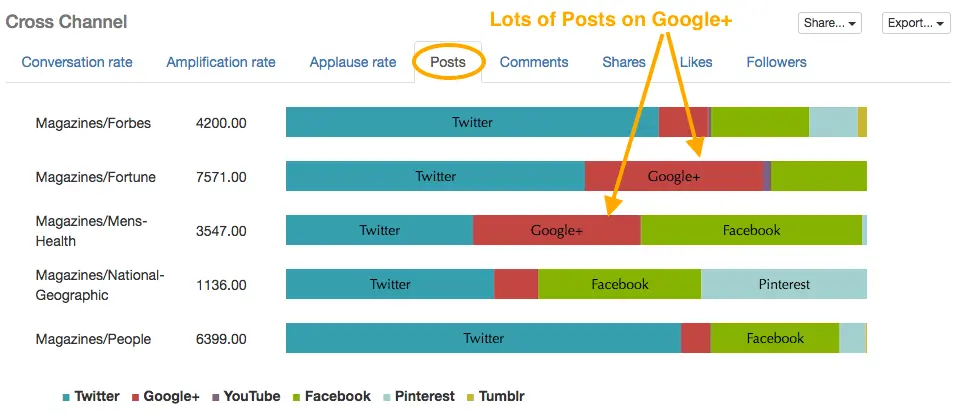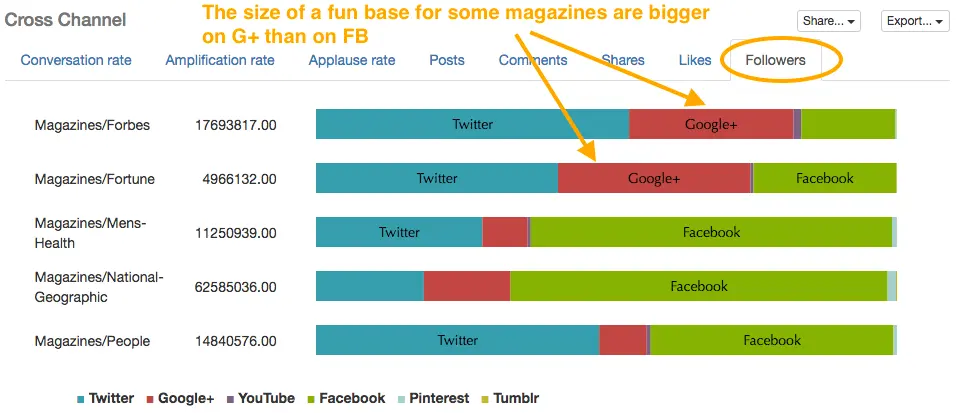Just a quick glance and you can see which social channel is your rock star. Do you spend the most time creating content for Twitter but get the most attention on LinkedIn instead? Then shouldn’t you be thinking of switching your efforts to the latter?
Compare the level of Engagement with your Posting Density on each channel to understand if you are wasting your precious time on ineffective social channels.
Let’s imagine you run a magazine and would like to see which channel works the best for you and your competitors:

Looks like Facebook is the most viral channel for all magazines, Twitter is the second and Google+ totally loses it. But if we look at how many posts are created for each channel, an unfair picture starts to emerge. Magazines spend time creating so many posts for Google+, but each Google+ post gets only a small amount of attention from the followers. Compared to Facebook, it may look like a waste of time:

What is even more unnerving is that they have almost 2 times as many Followers on Google+ than on Facebook. So the problem with low engagement on Google + isn’t caused by a smaller sized fan base:

Of course, being present on different channels may have other reasons than getting more attention (e.g., if G+ has a different target audience than Facebook), then it would make sense to be present on both channels. But if the reasons and audiences are similar, maybe it’s time to consider if they really need to be on Google+ at all. Spending time on creating content and managing a social page but getting very little reaction; maybe it’s better to switch efforts to a more effective channel?
Don’t forget to also check your Economic value for each channel as well (it maybe the case that Google+ brings more active visitors that convert better on your site than Facebook visits).
Amplification rate - indicates how many times on average each of your posts was Shared/Retweeted (e.g. Amplification rate = 5 means that each of your posts was shared 5 times on average).
Amplification rate = # of Shares/ # of Posts
Conversation rate indicates how many Comments/Replies on average each of your posts has received (e.g. Conversation rate = 5 means each of your posts has an average of 5 comments).
Conversation rate = # of Comments/ # of Posts
Applause rate - indicates how many Likes/Likes each of your posts has received on average (e.g. Applause rate = 5 means each of your posts has an average of 5 Likes).
Applause rate = # of Likes/ # of Posts